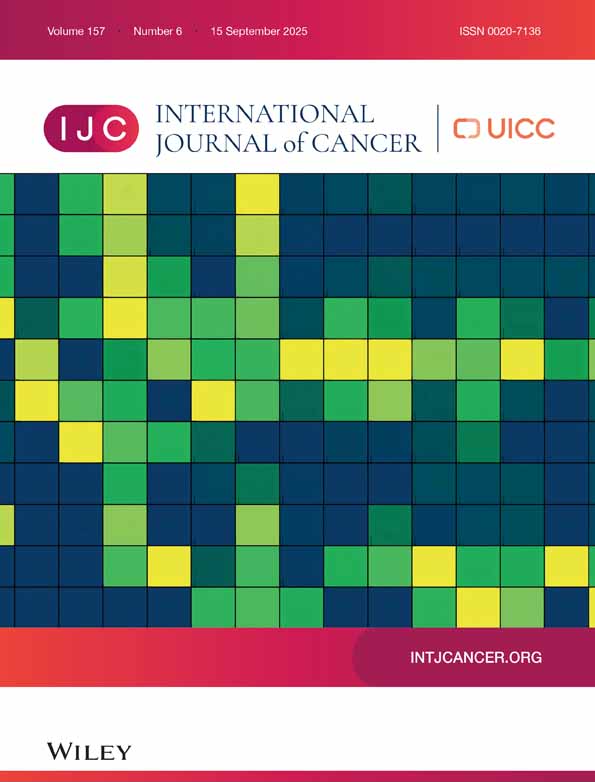Human retroviruses: Cancer and aids
Lata S. Nerurkar
Laboratory of Tumor Cell Biology, National Cancer Institute, National Institutes of Health, Bethesda, MD 20892, USA
Search for more papers by this authorRobert C. Gallo
Laboratory of Tumor Cell Biology, National Cancer Institute, National Institutes of Health, Bethesda, MD 20892, USA
Search for more papers by this authorLata S. Nerurkar
Laboratory of Tumor Cell Biology, National Cancer Institute, National Institutes of Health, Bethesda, MD 20892, USA
Search for more papers by this authorRobert C. Gallo
Laboratory of Tumor Cell Biology, National Cancer Institute, National Institutes of Health, Bethesda, MD 20892, USA
Search for more papers by this authorAbstract
Human retroviruses are associated with a wide spectrum of clinical entities including cancers, immune deficiency and neurological disorders. They have become the focal point of all retrovirology by virtue of their extreme clinical relevance, their novel and complex biologic and genetic properties, as well as their regulation strategies. The study of these viruses is of great importance as understanding of their interactions with the host will ultimately shed light on fundamental mechanisms of genetic controls in human cells in their normal state and the alterations in these controls in neoplastic or immunologically aberrant states.
References
- Elder, G. A. and Sever, J. L., Neurologic disorders associated with AIDS retroviral infection. Rev. infect. Dis., 10, 286–302 (1988).
- Ensoli, B., Lusso, P., Schachter, F., Josephs, S. F., Rappaport, J., Negro, F., Gallo, R. C. and Wong-Staal, F., Human herpesvirus-6 increases HIV-1 expresion in co-infected T cells via nuclear factors binding to the HIV-1 enhancer. EMBO J. (in press).
- Ensoli, B., Nakamura, S., Salahuddin, S. Z., Biberfeld, P., Larsson, L., Beaver, B., Wong-Staal, F. and Gallo, R. C., AIDS-Kaposi's sarcoma-derived cells express cytokines with autocrine and paracrine growth effects. Science, 243, 223–226 (1989).
- Folks, T. M., Kessler, S. W., Orenstein, J. M., Justement, J. S., Jaffe, E. S. and Fauci, A. S., Infection and replication of HIV-1 in purified progenitor cells of normal human bone marrow. Science, 242, 919–922 (1988).
- Franchini, G., Gallo, R. C., Guo, H. G., Gurgo, C., Collalti, E., Fargnoli, K. A., Hall, L. F., Wong-Staal, F. and Reitz, M. S., Jr., Sequence of simian immunodeficiency virus and its relationship to the human immunodeficiency viruses. Nature (Lond.) 328, 539–542 (1987).
- Gallo, R. C., The first human retrovirus. Sci. Amer., 255, 88–98 (1986).
- Gallo, R. C., The AIDS virus. Sci. Amer., 256, 46–56 (1987).
- Gallo, R. C., HIV–the cause of AIDS: an overview on its biology, mechanism of disease induction and our attempts to control it. JAIDS, I, 521–535 (1988).
- Gallo, R. C. and Montagnier, L., AIDS in 1988. Sci. Amer., 259, 41–48 (1988).
- Gardner, M. B., Luciw, P., Lerche, N. and Marx, P., Non-human primate retrovirus isolates and AIDS. In: K. Perk (ed.), Advances in veterinary science and comparative medicine: immunodeficiency disorders and retroviruses, Vol. 32, pp. 171–226, Academic Press, San Diego (1988).
- Gartner, S., Markovits, P., Markovitz, D. M., Betts, R. and Popovic, M., Virus isolation from and identification of HTLV-III/ LAV-producing cells in brain tissue from an AIDS patient. J. Amer. med. Assoc., 256, 2365–2371 (1986a).
- Gartner, S., Markovits, P., Markovitz, D., Kaplan, M., Gallo, R. C. and Popovic, M., The role of mononuclear phagocytes in HTLV-III/LAV infection. Science, 233, 215–219 (1986b).
- Homma, T., Kanki, P. J., King, N. W., Hunt, R. D., O'Connell, M. J., Letvin N. C., Daniel, M. D., Desrosiers, R. L., Yang, C. S. and Essex, M., Lymphoma in macaques: association with virus of human T lymphotropic family. Science, 225, 716–718 (1984).
- Klatzmann, D., Barre-Sinoussi, F., Nugeyre, M. T., Dauguet, C., Vimer, E., Griscelli, C., Brun-Vezinet, F., Rouzious, C., Gluckman, J. C., Chermann, J.-C., and Montagnier, L., Selective tropism of lymphadenopathy-associated virus (LAV) for helper-inducer T lymphocytes. Science, 225, 59–63 (1984).
- Koenig, S., Gendelman, H. E., Orenstein, J. M., Dal Canto, M. C., Pezeshkpour, G. H., Yungbluth, M., Janotta, F., Aksamit, A., Martin, M. A. and Fauci, A. S., Detection of AIDS virus in macrophages in brain tissue from AIDS patients with encephalopathy. Science, 233, 1089–1093 (1986).
- Lusso, P., Ensoli, B., Markham, P. D., Ablashi, D. V., Salahuddin, S. Z., Tschachler, E., Wong-Staal, F. and Gallo, R. C., Productive dual infection of human CD4+ T lymphocytes by HIV-1 and HHV-6. Nature (Lond.), 337, 370–373 (1989).
- Markham, P. D., Salahuddin, S. Z., Kalyanaraman, V. S., Popovic, M., Sarin, P. and Gallo, R. C., Infection and transformation of fresh human umbilical-cord blood cells by multiple sources of human T-cell leukemia-lymphoma virus (HTLV). Int. J. Cancer, 31, 413–420 (1983).
- Nakamura, S., Salahuddin, S. Z., Biberfeld, P., Ensoli, B., Markham, P. D., Wong-Staal, F. and Gallo, R. C., Kaposi's sarcoma cells: long-term culture with growth factor from retrovirus-infected CD4+ T cells. Science, 242, 426–430 (1988).
- Popovic, M., Lange-Wantzin, G., Sarin, P. S., Mann, D. and Gallo, R. C., Transformation of human umbilical-cord blood T cells by human T-cell leukemia/lymphoma virus. Proc. nat. Acad. Sci. (Wash.), 80, 5402–5406 (1983).
- Rappersberger, K., Gartner, S., Schek, P., Stingl, G., Groh, V., Tschachler, E., Mann, D. L., Wolff, K., Konrad, K. and Popovic, M., Langerhans' cells are an actual site of HIV-1 replication. Intervirology, 29, 185–194 (1988).
- Rogers-Johnson, P. E., Garruto, R. M. and Gajdusek, D. C., Tropical myeloneuropathies–a new etiology. Trends neurol. Sci., 11, 526–532 (1988).
- Salahuddin, S. Z., Nakamura, S., Biberfeld, P., Kaplan, M. H., Markham, P. D., Larsson, L. and Gallo, R. C., Angiogenic properties of Kaposi's-sarcoma-derived cells after long-term culture in vitro. Science, 242, 430–433 (1988).
- Scientific American, What science knows about AIDS. Sci. Amer., 259, 40–152 (1988).
- Zagury, D., Bernard, J., Leonard, R., Cheynier, R., Feldman, M., Sarin, P. S. and Gallo, R. C., Long-term cultures of HTLV-III-infected T cells: a model of cytopathology of T-cell depletion in AIDS. Science, 231, 850–853 (1986).




